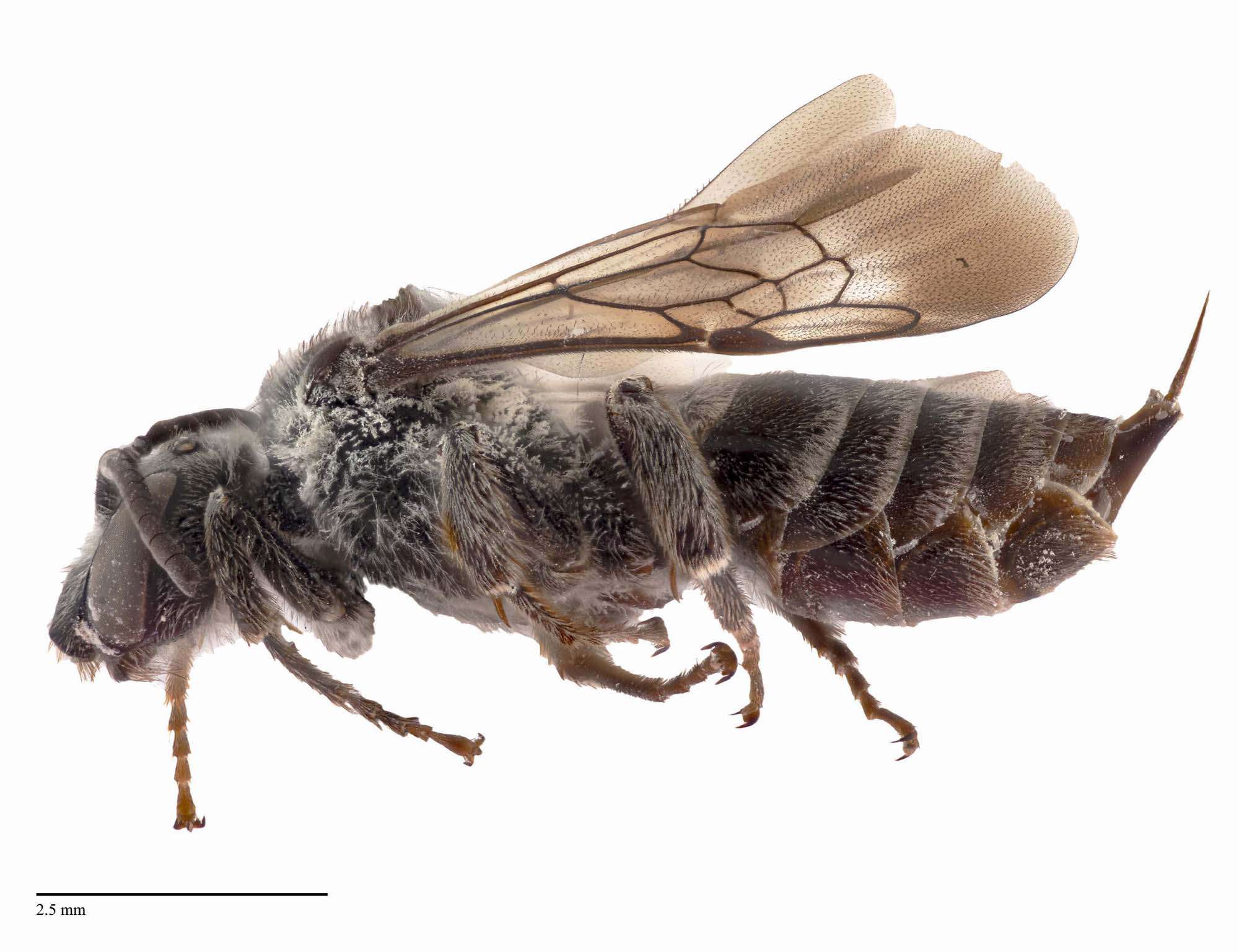A bee captured by a Canadian museum’s summer school attendant has been identified as a rare species that has not been seen in the province for almost 70 years.
Zoologist Dr Cory Sheffield from the Royal Saskatchewan Museum (RSM) in the city of Regina, Saskatchewan Province, said the discovered type was determined to be a Macropis Cuckoo Bee specimen.
The solitary pollinator, also known as Epeoloides pilosulus, is considered an endangered species.
The scientist explained: “This specimen supports that populations may still exist in the province, though it is still one of the most uncommon bees in Canada.”
Speaking about its discovery outside Grasslands National Park, a resort near the village of Val Marie, Dr Sheffield said: “For insects collected by museum researchers, it sometimes takes a long time to process and identify all that you’ve captured.”
He revealed: “I noticed an interesting bee that the summer students had just prepared for the collection. It was pretty exciting.”
The insect was last seen in Saskatchewan in 1955.
Government of Saskatchewan official Jamie Gibson explained: “The rare bee is a nest parasite, or cuckoo, of oil-collecting bees of the Macropis group that is entirely dependent on the oil from a wildflower known as Fringed Loosestrife, or Lysimachia ciliata.”
In 2011, Canadian environment experts categorised the pollinator as endangered. Its habitat reduction has resulted in a decline in nesting sites and hot plant populations.
Saskatchewan’s Minister for Parks, Culture and Sport, Laura Ross, praised the discovery as “very significant.”
However, RSM researchers did not say whether they had evidence for a substantial population increase of the endangered species in the province.
The Macropis Cuckoo Bee was previously detected in Nova Scotia, Alberta, Manitoba and New Brunswick.
Saskatchewan, which is located in central-western Canada, is home to almost 300 different bee species, according to the provincial government.
Solitary bees such as the Macropis Cuckoo Bee are highly important. They do not produce honey but their pollination helps to keep local ecosystems stable.
There are more than 20,000 known species of bees in the world. Each type has its own habitat preferences.
To find out more about the author, editor or agency that supplied this story – please click below.
Story By: Thomas Hochwarter , Sub-Editor: Marija Stojkoska, Agency: The Bee News
The Ananova page is created by and dedicated to professional, independent freelance journalists. It is a place for us to showcase our work. When our news is sold to our media partners, we will include the link here.




